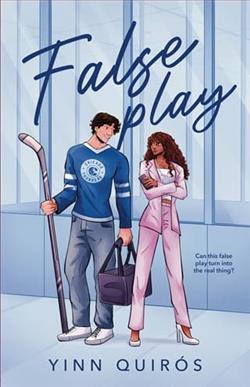Page 67 of Shadowfox
I made a show of looking around the shop, picking up one item, then another, before returning to the display case at the front. Thomas sputtered when the man told us his price for the radio with the wooden case. He plucked the tag from the display and read the figure aloud: three thousand forints, approximately two hundred fifty U.S. dollars. It was an exorbitant sum equal to four months’ salary for a skilled worker.
The less elaborate radio was listed for two thousand.
Back home, the same boxes might sell for thirty dollars, double or triple for the luxury models. Two hundred fifty would draw only the wealthiest of customers’ attention.
The old man didn’t speak English, so Thomas tried Russian. The man bristled, practically running—as quickly as his gnarled legs allowed—back behind his counter. Clearly,thathad been a mistake. Anything Russian evoked deep fear in the locals.
I held up two palms and smiled as endearingly as I could, then pointed to my chest and said, “American.” I then pointed to Thomas and said, “British.”
The old man eyed me, then let his gaze flick to Thomas. Confusion morphed into relief, then curiosity. He rattled off a string of creaky Hungarian words I couldn’t begin to comprehend, then stared, his owlish eyes blinking, as he waited for a reply.
Unable to come up with a common language, I pointed to the radio, the one not in the wooden case, and held up my forefinger. A thousand forints equaled roughly eighty American dollars. It was far too much for the box of transistors, but my heart ached for the old guy.
The old man tried to dicker, but I held firm. When I turned and motioned for Thomas to leave, the man yielded and agreed to my price.
Our minder was waiting across the street when we reemerged into the chilly night.
“What was all that about?” Thomas asked as we stepped into our hotel room.
I ignored him, stepping to the nightstand, unwrapping the radio from its brown paper, and plugging it in. A moment later, after fiddling with the knobs, the harmonies of Hungarian composer Franz Liszt wafted through the room. The notes burned at the edges, the piano storming with a kind of reckless poetry, demanding not just precision but soul—flashes of thunder chased by whispers of heartbreak. One moment there was high drama, the next our room filled with romantic longing and deep, visceral emotion.
The sound of Thomas’s shoe hitting the floor turned my head. He’d sat on the end of the bed, removed his hat and coat, and was unlacing his other shoe.
“It’s beautiful,” he said. “Kind of sad, though.”
“Just like Budapest.”
He grunted agreement as his other shoe dropped to the floor.
I left the radio and began stripping down, catching a whiff of myself through my shirt. “God, I didn’t really do anything today, but I stink. I need a bath.”
Something deep within me stirred. Without thinking, I leaned down and took a dramatic sniff of Thomas’s neck, then wrinkled my nose as though I’d just smelled death itself.
“What?” he asked. “I smell—”
“You could use a bath, too,” I said, infusing my whisper with far more than annoyance at his scent—which was fine, by the way.
He stared a moment before recognition dawned.
“What are you thinking?” he whispered, even lower than I had. “We can’t—”
I leaned down and whispered so close to his ear, my breath probably tickled his brain. “Why do you think I wanted a radio?”
In all our time together, I’d never seen his eyes go so wide so fast. A laugh tumbled out of my mouth even faster. Before I knew it, I lay on my back, howling at the ceiling. Thomas covered his face with his palm and tried not to join me.
He reached for the top button of his shirt.
I bolted upright so fast it made me a little dizzy—but nothing was going to stop me onthismission.
The fingers of one hand slapped him away, while the other hand claimed the button for itself.
Then the next.
Then the next.
In the space of a few heartbeats, Thomas’s chest teased me through his parted shirt. Lean muscles, hardened by years of training that belied his upper-crust pedigree, stared back. A faint dusting of dark hairs, unable to form into anything coherent, poked out from formerly sun-kissed skin. He’d paled since we’d moved to Paris, but hints of his former tanned glory remained. I would forever be jealous of his love affair with Vitamin D.
Ever so gently, I trailed my fingertips along his skin, careful not to push his shirt from his shoulders. His chest was so warm. Despite the cold outside, he was coated in a layer of sweat.















